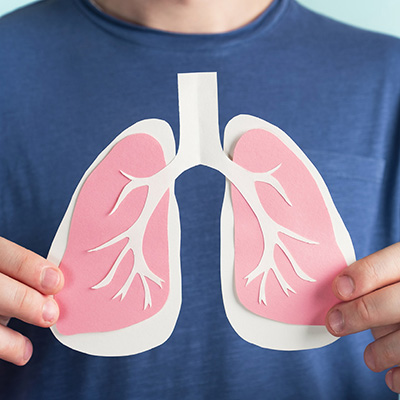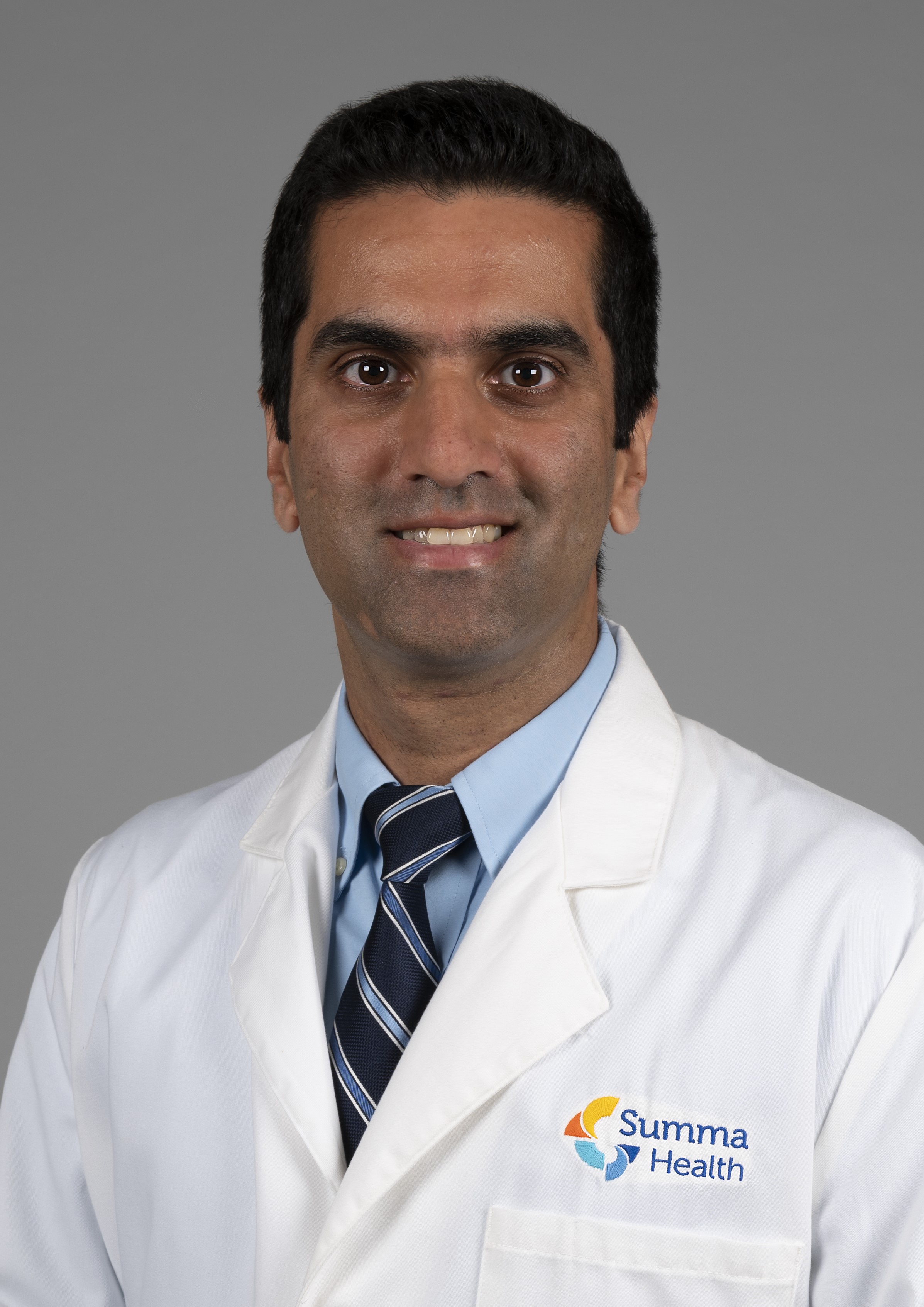Incorporate These 5 Daily Habits to Improve Your Lung Health
Posted February 20, 2023 by Faisal Qadir, M.D.

Prioritizing your lung health is very important, especially if you’re suffering from chronic lung conditions, such as COPD (chronic obstructive pulmonary disease), lung cancer or asthma.
Your lungs allow you to take in oxygen from the air you breathe and are the key to carrying it to all your organ systems to keep them running efficiently, while clearing your body of carbon dioxide.
The body has a natural defense system designed to protect the lungs, and help keep dirt and germs at bay. However, as you age there are important steps you can take to reduce your risk for chronic lung diseases or help prevent complications from them.
Summa Health offers five ways to keep your lungs healthy so you can breathe easier. Don’t take your lungs for granted — your lungs are your lifeline and ensure the life you want to live every second of the day!
Don’t smoke!
Smoking is the No. 1 risk factor for lung cancer and COPD. Smoke from tobacco products contains more than 7,000 chemicals, with about 100 of them known to cause cancer, according to the National Cancer Institute. Cigarette smoking also causes chronic inflammation, or swelling in the lungs, which makes breathing more difficult and can lead to chronic bronchitis.
If you smoke, it’s never too late to quit. Summa Health offers free smoking cessation counseling.
Minimize exposure to indoor and outdoor pollutants
We’ve all heard about the dangers of outdoor pollutants, such as breathing in harmful chemicals from smog, wildfires, motor vehicles and factories. But, did you know there also are indoor air pollutants that can harm your lungs?
Secondhand smoke, breathing chemical fumes from heavy occupations and radon can cause or worsen lung disease.
Here are a few ways to minimize exposure to indoor and outdoor pollutants to protect your lungs from harm.
- Check daily air pollution forecasts in your area and avoid prolonged exposure on high air pollution days, such as staying indoors, closing your windows and avoiding outdoor exercise.
- Avoid exercising outdoors near air pollution sources, such as power plants and high traffic areas.
- If you’re exposed to pollutants at work, take all necessary precautions and wear protective gear.
- Don’t allow smoking in your home.
- Get your home tested for radon levels and install a filtration system, if necessary.
Get regular check-ups
Seeing your healthcare provider regularly for well checks can help prevent diseases. Lung disease typically goes undetected until it becomes serious. Your provider can listen to your lungs and ensure they’re healthy, while giving you an opportunity to discuss any concerns about your lung health.
Don’t forget regular dental check-ups, too. Oral hygiene is important to keep harmful bacteria at bay, which can travel from your mouth to your upper airway.
Prevent infection
A cold or other respiratory infection can sometimes become very serious, especially as you age or if you already have lung disease. You can help protect your lungs from infection by washing your hands regularly, avoiding crowds in cold and flu season, and staying up to date with your immunizations, including a yearly flu shot, COVID-19 booster and the pneumonia vaccine, if necessary. Encourage others in your household to do the same.
Exercise regularly
No matter your age, body type or condition, exercise is the best medicine for your lungs. Just as regular exercise keeps you in shape, it keeps your lungs in shape, too. When you’re physically active, your lungs have to work harder to supply the additional oxygen your muscles need, while expelling carbon dioxide. As your physical fitness improves, so does the efficiency of your lungs to better resist disease.
Don’t forget breathing exercises, too. Deep breathing helps to clear the lungs and creates a full oxygen exchange.
Make it your goal to incorporate these habits in your daily routine so you can breathe easier about your lung health.
About the Author
Vitality eNews Sign Up
Receive the Summa Health eNewsletter for the latest health tips, advice and updates.


 Listen to this episode of the Healthy Vitals Podcast featuring
Listen to this episode of the Healthy Vitals Podcast featuring